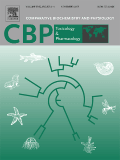
COMPARATIVE BIOCHEMISTRY AND PHYSIOLOGY C-TOXICOLOGY & PHARMACOLOGY
metrics 2024
Unlocking the Secrets of Biochemical Processes Across Species
Introduction
Comparative Biochemistry and Physiology C-Toxicology & Pharmacology, published by Elsevier Science Inc, stands as a prominent resource in the fields of pharmacology, toxicology, and biochemical research. With its ISSN 1532-0456 and E-ISSN 1878-1659, this journal has carved out a significant niche, focusing on the comparative aspects of biochemical and physiological data across various species. Recognized for its impact in diverse fields, it boasts a Q1 ranking in Animal Science and Zoology, Aquatic Science, Health, Toxicology and Mutagenesis, alongside respectable standings in other related disciplines. Researchers and professionals can leverage this publication to access high-quality, peer-reviewed studies that advance the understanding of biochemical processes and their toxicological implications. The journal aims to bridge the gap between laboratory findings and real-world applications, fostering an environment for interdisciplinary collaboration. For academics seeking to enhance their knowledge or contribute to this impactful field, Comparative Biochemistry and Physiology C-Toxicology & Pharmacology serves as an invaluable platform.
Metrics 2024
 0.94
0.94 3.90
3.90 3.90
3.90 121
121Metrics History
Rank 2024
Scopus
IF (Web Of Science)
JCI (Web Of Science)
Quartile History
Similar Journals

CHEMICAL RESEARCH IN TOXICOLOGY
Pioneering research at the intersection of chemistry and safety.Chemical Research in Toxicology is a premier journal published by the American Chemical Society, dedicated to advancing the understanding of toxicological effects associated with chemical substances. Since its inception in 1988, this esteemed journal has maintained a robust impact factor, ranking in the Q1 quartile for both Medicine (miscellaneous) and Toxicology as of 2023, reflecting its significance and influence in the fields of pharmacology and toxicology. With an impressive Scopus ranking at #16 out of 133 in the Toxicology category, it serves as a vital resource for researchers, professionals, and students seeking cutting-edge insights and scholarly articles that bridge the gap between chemistry and toxicological science. Although not an open-access publication, it continues to provide comprehensive analyses and original research that inform safe chemical practices and regulatory policies, further enhancing its role in public health and safety.

TOXICOLOGY AND APPLIED PHARMACOLOGY
Pioneering Research in Toxicological ScienceTOXICOLOGY AND APPLIED PHARMACOLOGY, published by Academic Press, Inc. Elsevier Science, stands as a leading journal in the domains of toxicology and pharmacology, with its establishment dating back to 1959. With an impact factor reflecting its academic rigor and relevance, this journal is classified in the Q2 quartile for both pharmacology and toxicology categories, underscoring its significance in the scientific community. It ranks #34 out of 133 in Toxicology and #95 out of 313 in Pharmacology according to Scopus, placing it within the 74th and 69th percentiles, respectively. The journal aims to disseminate quality research that drives advancements in understanding the interactions of drugs and toxic substances within biological systems. Researchers and professionals are invited to contribute and engage with a broad spectrum of articles that cover mechanistic studies, risk assessment, and innovative therapeutic strategies. Although the journal does not offer open access, it continues to be a crucial resource for those who seek to navigate the complex interface of drugs and their toxicological implications.

Journal of Comparative Physiology B-Biochemical Systems and Environmental Physiology
Exploring the Interactions of Life and EnvironmentJournal of Comparative Physiology B-Biochemical Systems and Environmental Physiology, published by SPRINGER HEIDELBERG in Germany, stands at the forefront of research in the fields of physiology, biochemistry, and ecological systems. With a commitment to fostering interdisciplinary communication, this journal has been a vital resource since its inception in 1974, converging scientific exploration through the lens of biochemical mechanisms and environmental adaptations in animal systems. Renowned for its rigorous peer-review process, it has achieved impressive rankings, including Q2 in Animal Science and Zoology and Ecology, Evolution, Behavior and Systematics, reflecting its substantial impact within these disciplines. The journal aims to disseminate cutting-edge research that advances our understanding of physiological and biochemical processes while addressing contemporary environmental challenges. While currently operating on a traditional access model, the journal's contributions are crucial for researchers, professionals, and students seeking profound insights into the complex interactions between organisms and their environments.
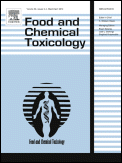
FOOD AND CHEMICAL TOXICOLOGY
Transforming toxicology knowledge into actionable insights.FOOD AND CHEMICAL TOXICOLOGY, published by Pergamon-Elsevier Science Ltd, is a prestigious journal with a significant impact in the fields of food science, medicine, and toxicology, reflecting its Q1 and Q2 quartile rankings in various categories as of 2023. Established in 1982, this journal continues to serve as an essential platform for disseminating high-quality research focused on the toxicological assessment of foods and chemicals, aiming to advance knowledge that affects public health and safety. With a pivotal role in integrating diverse disciplines, including pharmacology and agricultural sciences, the journal ranks impressively within the top percentiles—specifically 95th in Toxicology and 92nd in Food Science on the Scopus metrics. Though it operates on a traditional subscription model, the journal is committed to providing valuable insights and findings to researchers, professionals, and students across the globe, making it a vital resource in the ongoing discourse around food safety and environmental health. Its comprehensive scope underscores its importance in shaping evidence-based policies and practices.

TOXICOLOGY
Elevating research in toxicology to safeguard public health.TOXICOLOGY, published by Elsevier Ireland Ltd, is a prestigious peer-reviewed journal specializing in the field of toxicology. With an ISSN of 0300-483X and an E-ISSN of 1879-3185, this journal provides a vital platform for researchers, professionals, and students to disseminate and access groundbreaking studies from 1973 to present, with a convergence set until 2024. Recognized for its high impact, it holds a Q1 ranking in Toxicology category and ranks #18 out of 133 in Scopus's sector of Pharmacology, Toxicology, and Pharmaceutics, placing it in the 86th percentile. While the journal is not open access, it nonetheless offers a rich collection of research articles that enhance the understanding of toxicological science and its applications. The journal's objectives encompass advancing knowledge in the toxicological evaluation of substances, promoting safety in public health, and fostering dialogue among scholars. As a key resource in the field, TOXICOLOGY plays a crucial role in advancing research and informing practices related to toxicological risks and safety assessments.

Toxics
Pioneering research in toxicology and environmental health.Toxics is a leading international journal published by MDPI that has been dedicated to advancing the knowledge in the fields of toxicology, environmental health, and chemical safety since its inception in 2013. With an impressive Open Access model, it ensures that all research findings are readily available to a global audience, fostering collaboration and innovation across academia and industry. The journal is esteemed for its rigorous peer-review process and holds notable rankings, including Q1 status in Chemical Health and Safety and Q2 in both Health, Toxicology and Mutagenesis and Toxicology, reflecting its impact on critical research areas. Based in Basel, Switzerland, Toxics provides a platform for researchers, professionals, and students to disseminate significant findings on the implications of toxic substances in health and the environment, aiming to improve public health outcomes and inform regulatory decisions. With its ongoing commitment to high-quality research and relevant access options, Toxics continues to be an essential resource in the domain of toxicology and environmental sciences.
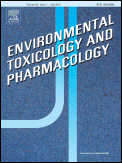
Environmental Toxicology and Pharmacology
Exploring the intersection of pollutants and biology.Environmental Toxicology and Pharmacology, published by Elsevier, is a leading journal dedicated to advancing our understanding of the effects of environmental pollutants on biological systems. With an ISSN of 1382-6689 and an E-ISSN of 1872-7077, this journal covers a wide range of studies related to toxicology, pharmacology, and environmental health. The journal is classified as Q2 in key categories such as Health, Toxicology and Mutagenesis and Medicine (miscellaneous), and sits impressively in Q1 for Toxicology, reflecting its strong impact in the field. As of 2023, it ranks #30 out of 133 in Toxicology and #40 out of 148 in Health, indicating its high relevance and contribution to research. While the journal is not currently open access, it remains a pivotal resource for researchers, professionals, and students seeking to explore the intricacies of environmental health effects. Its commitment to publishing high-quality peer-reviewed research positions it as a crucial platform for scientific dialogue and discovery.

NEUROTOXICOLOGY
Transforming Knowledge into Action in NeurotoxicologyNEUROTOXICOLOGY, published by Elsevier, stands at the forefront of research in the disciplines of neuroscience and toxicology, contributing significantly to the understanding of neurotoxic effects and their implications for health. With an impact factor positioned within the second quartile in both neuroscience and toxicology categories, this journal has established itself as a crucial platform for disseminating high-quality research findings and innovative methodologies. Since its inception in 1979 and continuing through 2024, NEUROTOXICOLOGY has provided valuable insights and evidence-based studies that facilitate advancements in the fields of pharmacology and neuroscience, making it a pivotal resource for researchers, professionals, and students alike. Although not an open-access publication, it offers extensive access options ensuring wide dissemination of knowledge. Located in the Netherlands, the journal’s continued commitment to excellence is evident through its high rankings in Scopus, reflecting its prominence and relevance in the scientific community.
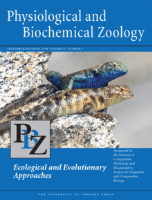
PHYSIOLOGICAL AND BIOCHEMICAL ZOOLOGY
Fostering Innovation in Animal Science ResearchPhysiological and Biochemical Zoology is a distinguished peer-reviewed journal published by University of Chicago Press, focusing on the interrelated fields of animal physiology, biochemistry, and zoology. With a strong commitment to advancing scientific understanding, this journal serves as a vital resource for researchers, professionals, and students alike, providing a platform for the latest findings and advancements in the field. Ranking in the top quartile (Q1) in Animal Science and Zoology as of 2023, and showcasing a substantial convergence of historical data from 1999 to 2023, its impact in the academic community is underscored by its engagement with high-quality research. While it also appears in the third quartile for Biochemistry and Physiology, the journal successfully integrates these disciplines, reflecting the complexity of biological systems. Available for reading via various access options, this journal is essential for anyone seeking to deepen their knowledge or contribute to the field of Zoological sciences.
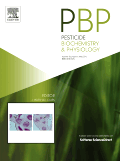
Pesticide Biochemistry and Physiology
Bridging agricultural practices with cutting-edge biochemistry insights.Pesticide Biochemistry and Physiology, published by Academic Press Inc Elsevier Science, is a prominent peer-reviewed journal dedicated to advancing knowledge in the fields of agronomy, crop science, and the toxicological effects of pesticides. With an established history since 1971, this journal aims to provide a platform for researchers and professionals to share groundbreaking studies that bridge the gap between agricultural practices and environmental health. Holding a remarkable Q1 ranking in both Agronomy and Crop Science as well as Health, Toxicology, and Mutagenesis, it reflects the journal's commitment to high-quality research. The journal is essential reading for anyone involved in the sustainability of agricultural ecosystems, offering insights into the biochemical interactions of pesticides and their physiological impacts on various crops and non-target organisms. As the global demand for sustainable agricultural practices escalates, Pesticide Biochemistry and Physiology remains at the forefront, promoting innovative research to ensure both food security and environmental safety. Converged through an extensive range of studies, this journal is a valuable resource for researchers, professionals, and students aiming to make significant contributions to the evolving landscape of pesticide biochemistry.